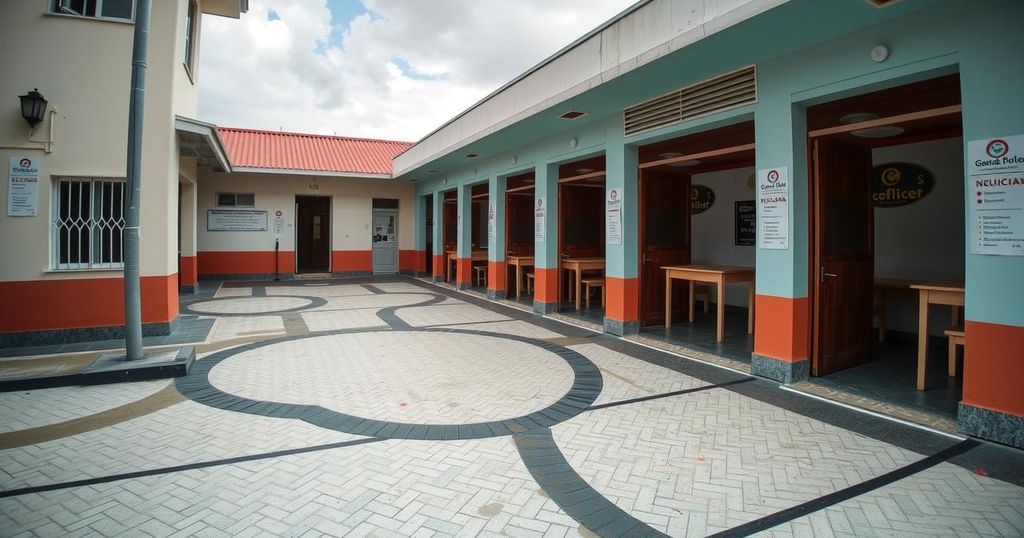Comoros Parliamentary Election Faces Opposition Boycott Amid Controversy

Comoros held a parliamentary election on Sunday, boycotted by some opposition parties citing authoritarian practices by President Azali Assoumani. With allegations of electoral fraud and disillusionment among voters, a low turnout is anticipated. Assoumani, who has held power through controversial means, continues to face serious criticism regarding his leadership and electoral integrity.
On Sunday, Comoros conducted a parliamentary election that faced a boycott from various opposition groups. These parties accused President Azali Assoumani and his ruling Convention for the Renewal of the Comoros party of increasingly authoritarian practices, undermining the electoral process’s integrity. The election, which will fill 33 legislative seats, comes off the back of a contentious political climate marked by allegations of previous electoral fraud and disaffection among the electorate, with only around 330,000 of the 850,000 population registered to vote. Assoumani, who first seized power in 1999 and has been president since winning his latest term in 2022, has been criticized for suppressing dissent and manipulating the electoral system in his favor. Despite challenges posed by Tropical Cyclone Dikeledi, officials proceeded with the voting amid concerns of a low turnout due to the opposition’s calls for a boycott and widespread disillusionment with the political landscape.
The Comoros archipelago, located in the Indian Ocean, has experienced a tumultuous political history marred by numerous military coups since its independence from France in 1975. President Azali Assoumani, a former military officer, has been a significant figure in this history, seizing power through a coup and later winning elections. His administration has seen ongoing accusations of political repression and non-competitive electoral practices, especially following constitutional changes in 2018 that allowed him to extend his presidency and disregard prior agreements regarding rotational power sharing among the islands. The political atmosphere remains polarized, especially after contested elections led to protests and further civil unrest.
In conclusion, the recent parliamentary election in Comoros reflects a broader trend of political discontent and skepticism towards the democratic process under President Azali Assoumani’s leadership. The elections are marked by boycotts from opposition parties and concerns over electoral integrity, indicating significant divisions within Comoros society. As the nation navigates its political challenges, the impact of these developments on future governance and public trust remains to be seen.
Original Source: www.wral.com








